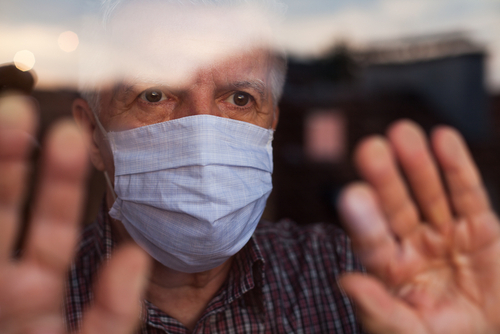Nearly 5,400 Have Died in NJ Nursing Homes; State and Facilities Both to Blame
According to an article on NJ.com, as of May 20, measures to mitigate COVID crises in NJ nursing homes fall short. Two sets of statistics exist regarding nursing home fatalities from the coronavirus in the state of New Jersey show grave realities. The first is 4,295, which is the number of lab-confirmed COVID deaths in long-term care facilities, equivalent to nearly 41 percent of New Jersey’s total deaths from the virus. The second number, which includes suspected COVID deaths alongside lab-confirmed fatalities, is 5,368, indicating that nursing homes make up over half of the coronavirus-related deaths in New Jersey. The administration of Gov. Phil Murphy counts only the lab-confirmed cases.
The difference between these two numbers likely comes down to testing. It was May 12, following on the heels of other states desperate to address the COVID crises in their long-term care facilities, when Gov. Murphy announced that all residents and staff within the state’s long-term care facilities would be tested for the coronavirus. In light of the 528 long-term care facilities affected by COVID, producing nearly 19,500 resident and 8,860 staff COVID-19 cases, the article suggests that the governor’s decision, and other efforts made by New Jersey in reaction to the pandemic’s effect on nursing homes, was neither fast nor aggressive enough. When coupled with missteps made by New Jersey nursing home owners and operators, the actions toward protecting New Jersey’s most vulnerable citizens were too little, too late.
According to the findings from an investigation conducted by NJ Advance Media for NJ.com, the measures to mitigate COVID crises in NJ nursing homes fall short as the bulk of the onus falls on the state; however, many NJ nursing homes are also to blame. The article cites four areas in which the state and its long-term care facilities have fallen short in preventing the rampage of the coronavirus with in NJ nursing homes:
- Delayed Inspections/Aborted Communication: More than a month elapsed between the initial nursing home COVID deaths and the arrival of state inspectors to determine the severity of circumstances within facilities. Along with the absence of inspectors, the federally mandated shutdown of facilities to visitors in mid-March removed patients’ first line of advocacy—their families—and thereafter many family members had to fight to obtain information about their loved ones.
- According to NJ.com, not until after 17 bodies were discovered at Andover Subacute and Rehab Center were some state inspections initiated. By that point, about 1,780 nursing home deaths across 450 long-term care facilities had occurred.
- Many families were not informed of an outbreak within a facility until after receiving word their loved one had already been infected.
- Insufficient Staffing: Issues with long-term facility staffing in New Jersey existed long before the arrival of the coronavirus pandemic, and staffing issues increased in conjunction with it. New Jersey nevertheless was slow, particularly in comparison with other states, to engage the National Guard’s help in feeding and caring for long-term care residents where staffing was scant.
- According to NJ.com, even prior to COVID, staffing issues afflicted 1 in 4 of New Jersey nursing homes. Low pay (particularly for CNAs) and the lack of minimum staffing requirements contributed to the problem.
- It wasn’t until May 7 that 120 National Guard soldiers were sent to those long-term care facilities overwhelmed by the COVID outbreak. By then, 25,000 infections and over 4,550 deaths had occurred in in New Jersey long-term care facilities.
- Lack of Financial Assistance: According to the article, New Jersey, in comparison with other states, did not offer aggressive assistance to those long-term care facilities impacted by the coronavirus.
- While Connecticut and Massachusetts raised Medicaid reimbursement rates for nursing homes in response to the growing demands caring for residents afflicted with COVID, New Jersey’s rates were not changed in response to the coronavirus.
- No funds were diverted to alleviate staffing or PPE shortages.
- Shortage of COVID-19 Tests and PPE: Despite repeated calls for adequate testing and for personal protective equipment, PPE (already low in supply) was reserved for hospital use, and testing for all nursing home residents and staff was not implemented until mid-May.
- In the early days of the pandemic, nursing homes that warned of a PPE shortage were told they were not Level One priority, says NJ.com.
- In spite of the understanding early on that COVID-19 could be spread by persons without symptoms, it was not until May 12 that testing for all staff and residents was ordered.
It was early March that the story broke about the rapid spread of the deadly virus within Seattle nursing home, making it clear that forceful intervention would be necessary to combat COVID outbreaks within nursing homes. It was advice, says NJ.com, that the state of New Jersey and its nursing home operators ought to have heeded.
Committed to Holding Negligent Nursing Facilities Accountable
The coronavirus pandemic has made for critical times. Now more than ever, it’s crucial to ensure that your loved one’s Pennsylvania, Philadelphia, or New Jersey nursing home meets every standard for safety and quality care. If you’re concerned about the quality of a Philadelphia/PA or NJ facility during the coronavirus pandemic, or if you suspect neglect or abuse has occurred at the Pennsylvania, Philadelphia, or New Jersey nursing home where your loved one lives, please contact nursing home abuse attorney Brian P. Murphy to discover your legal rights and options.







